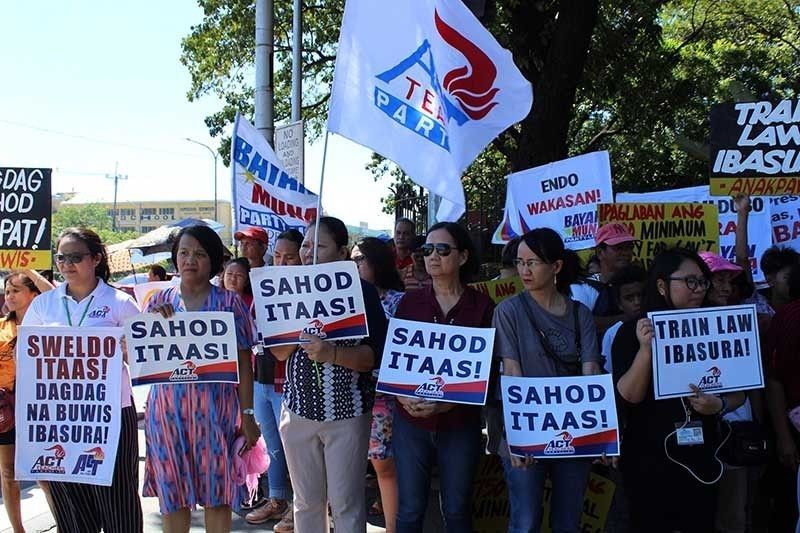Declare 'profiling' ACT members unconstitutional, court asked

MANILA, Philippines — Members of the Alliance of Concerned Teachers on Thursday asked the Court of Appeals to strike down the police's "profiling" of their members as unconstitutional.
In a petition for certiorari, ACT, through the National Union of Peoples’ Lawyers, asked the appellate court to strike down the Philippine National Police's memorandum to "inventory" members of the teachers' union as unconstitutional as it violates their rights.
The petitioners cited a memorandum from the Antipolo City Police Station with a subject “Inventory of all public and private school teachers who are members of or aligned with [ACT].”
The memorandum directs police to get the names, schoold and addresses of ACT members.
A similar memorandum was also signed by the Manila Police District Chief Intelligence Branch.
Memo violates freedom of association
The petitioners argued that the "inventory" violates the right to freedom of association enshrined in the Constitution.
They stressed that the Supreme Court has set that “unless an association or society could be shown to create an imminent danger to public safety, there is no justification for abridging the right to form association or societies.”
“Petitioners’ militant orientation and affinity with progressive groups do not constitute acts contrary to law. Neither do its salutary advocacies warrant any state infringement and curtailment of their right to freely associate,” the pleading further reads.
The Anti-Subversion Law has long been repealed, and the several groups including the Commission on Human Rights flagged the ‘profiling’ as akin to red-tagging, which endangers and has endangered lives.
They also pointed out that presidential spokesperson Salvador Panelo and the PNP justified activity by saying members of the teachers' unions should not be afraid as long as they are not doing anything wrong.
“But again, our Constitution and laws do not allow them to decide, unilaterally and without due process, that petitioners and their members are indeed committing wrongs,” they added.
ACT is affiliated with the national democratic activist umbrella group Bagong Alyansang Makabayan, both of which are legal groups. Neither activism nor forming unions and organizations are crimes under Philippine law.
Data Privacy Act violation
The petitioners said that the police’s memo required data that were both personal and sensitive information, which includes an individual’s political affiliation, and thus should adhere to “transparency, legitimate purpose and proportionality.”
“The legitimacy of the purpose requires that the “processing of information shall be compatible with a declared and specified purpose which must not be contrary to law, morals or public policy,” the petition read.
They pointed out that neither the teachers nor the Department of Education, which controls the data covered by the memorandum, were informed of, and could not object to, the act.
Education Secretary Leoner Briones, on January 7, said that the department’s central office has not received any request for information or assistance from the PNP.
READ: DepEd recalls letter on listing ACT members
“Should any inter-agency request for personal information of individuals be received by DepEd, such request shall be evaluated based on existing laws and regulations, including the Data Privacy Act,” DepEd stressed in its statement.
The National Privacy Commission has already urged the PNP to explain their memorandum.
The STAR reported that NPC Commissioner Raymund Liboro said officials of the PNP Data Protection Unit should explain the reported intelligence gathering operations on teachers belonging to the ACT.
“We had conducted Data Privacy Act briefings with the PNP before, together with their data protection unit. We will be contacting them,” he told The STAR.
The PNP said that they are ready to explain their memorandum to the NPC.
- Latest
- Trending































